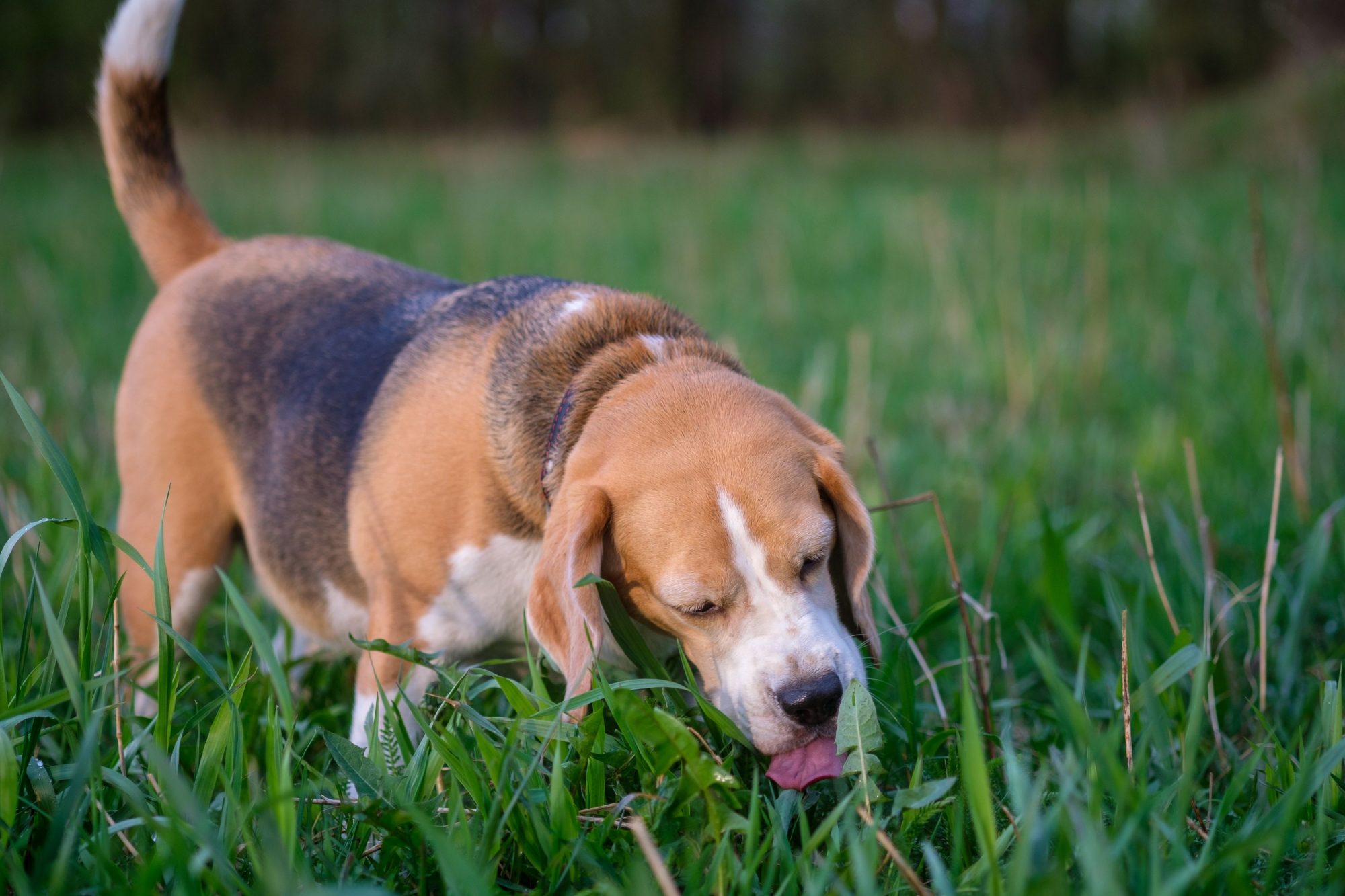Green In The Face: Why Does My Dog Eat Grass?

Dogs have a host of quirky behaviors, especially when it comes to eating odd things, and grass is definitely one of them. If your dog has a tendency to nibble on your lawn when outdoors, you probably want to know ‘why’ and if this habit is harmful. The team at Lone Tree Veterinary Medical Center is happy to help you better understand why some dogs like to consume the green stuff.
What’s So Appealing About Grass?
While canine digestive needs have evolved to suit a domesticated lifestyle, there are some instinctive leftovers from the days of living in the wild. As omnivores (which means they can survive on both plant and animal matter), canines still have an affinity for nibbling on certain plants. Grass tends to be the most common one.
There are many reasons why dogs eat grass and, while not always a reason for worry, the behavior may indicate that something isn’t quite right and needs to be addressed. Following are the most common explanations for why dogs eat grass:
- There is a line of thought that dogs occasionally chew on grass because they are trying to make up for a nutritional deficiency or a lack of adequate fiber in their diet. If the dog is having trouble passing stool or gas, the fiber in the grass can help stimulate a bowel movement, providing some relief.
- Eating grass may also be a sign of an upset tummy and consuming the grass makes the dog vomit and eliminate the irritant, which helps the dog feel better. If it is a new behavior or one that has become frequent, it could be a sign of a more serious gastrointestinal problem,.
- Sometimes dogs, and puppies in particular, eat grass purely out of boredom. Grass is commonly available when outdoors and provides an object of interest to be chewed on or played with.
- It is possible that eating grass is due to an underlying behavior issue, such as anxiety, fear, or stress, and the dog is using the grass as a means of distraction from what it’s experiencing.
Is It Dangerous For My Dog To Eat Grass?
Grass itself isn’t harmful for dogs, but it could expose your dog to potentially harmful illness from intestinal parasites in pet waste, bacterial disease such as leptospirosis (which is transmitted through infected urine), and the fertilizers and pesticides used in lawn treatments. All of these contaminants can cause serious health problems for dogs when consumed.
What To Do?
If you are concerned about your dog’s grass-eating behavior or if this is a new or reoccurring problem, you should schedule an appointment with one of our veterinarians. A physical exam will allow us to check for an underlying health condition, a nutritional deficiency, or other medical issue that could be causing the behavior.
If the exam shows no medical or nutritional problem, perhaps it’s time to consider a behavioral consult with our Behavior Specialist to see if there is an anxiety or fear-based cause that can be helped.
At Lone Tree Veterinary Medical Center, our team enjoys helping pets have great lives with their human companions. If you are worried about your dog eating grass or you have any other another pet-related need, do not hesitate to contact us!

